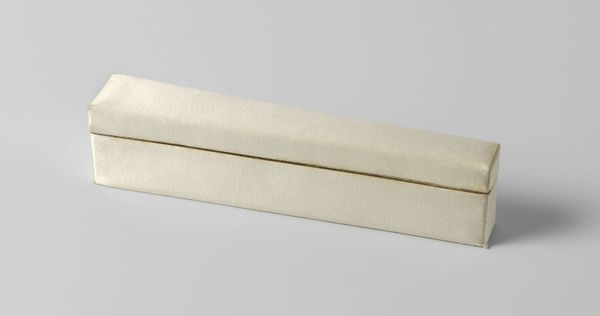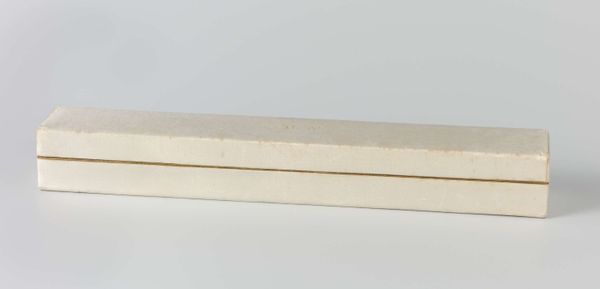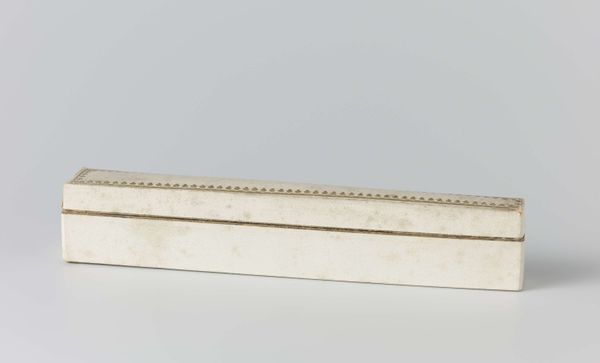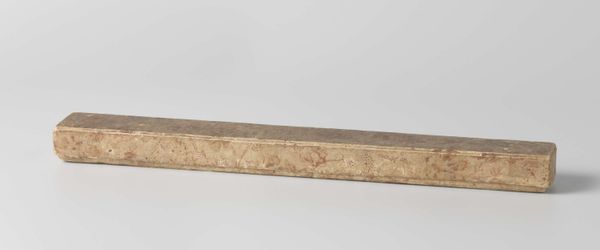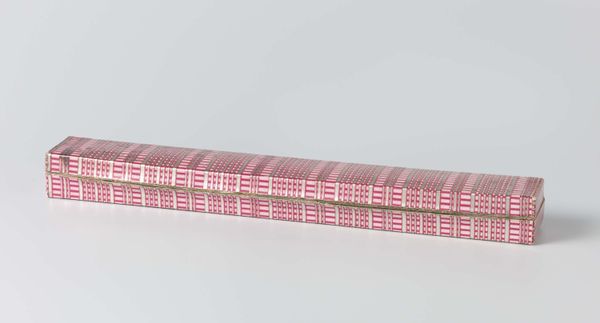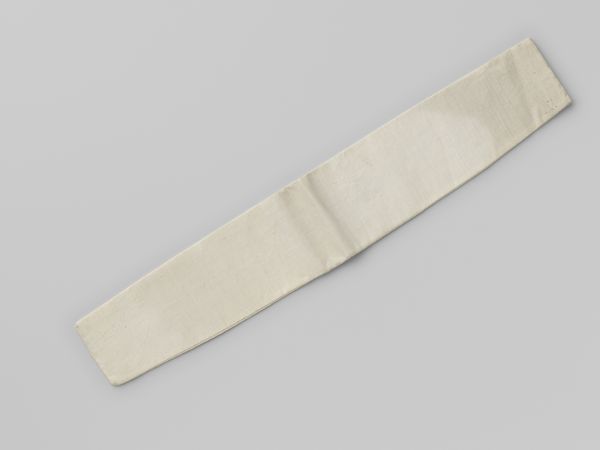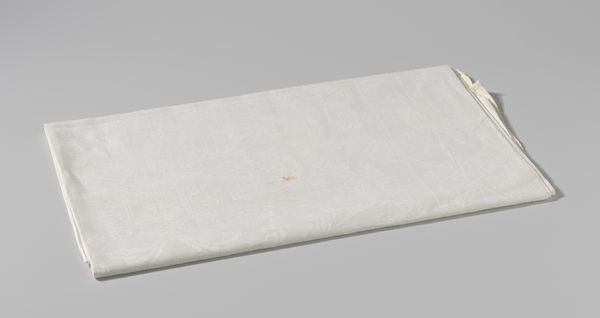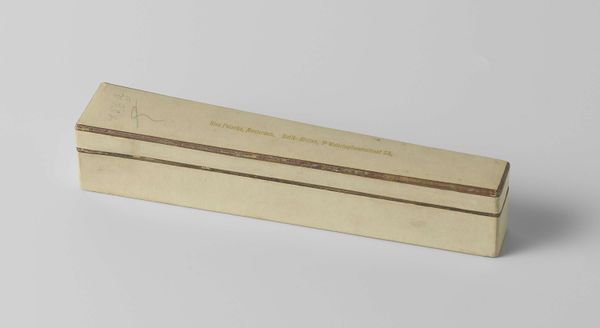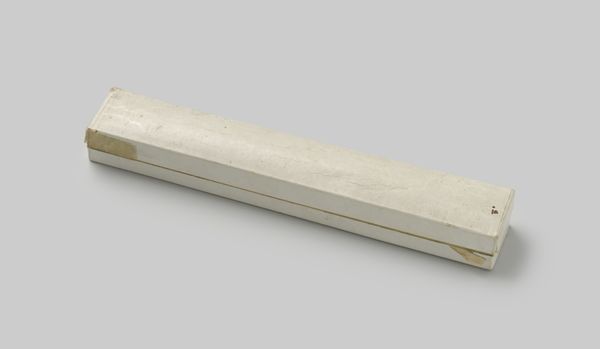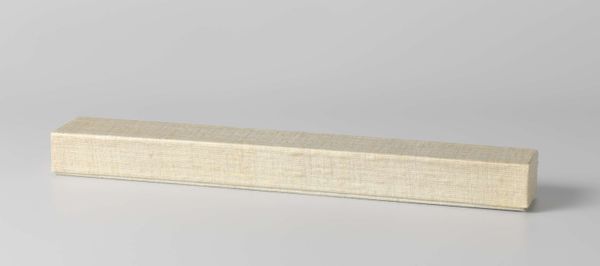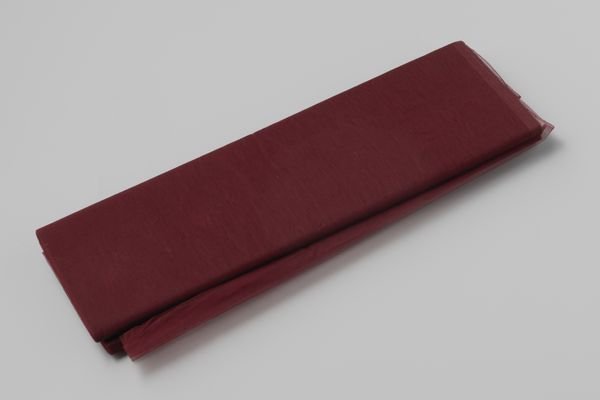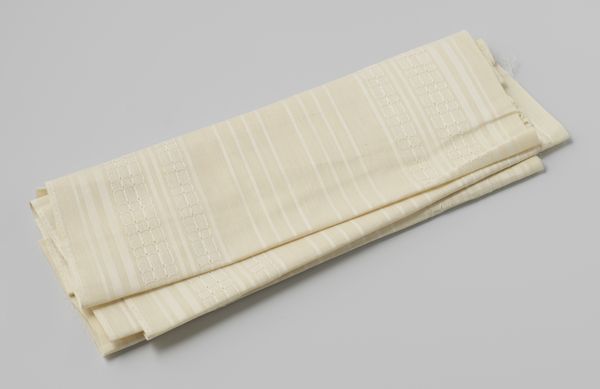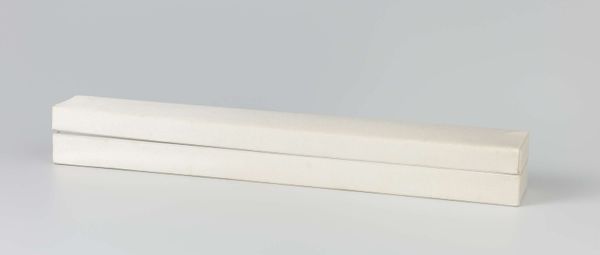
#
circular oval feature
#
3d printed part
#
white clean appearance
#
round design
#
bright focal point
#
wash background
#
white focal point
#
round circular shape
#
white background
#
cutout
Dimensions: length 25.4 cm, height 2.6 cm, width 3.5 cm
Copyright: Rijks Museum: Open Domain
Editor: Here we have a fan box made around 1882, crafted from paper and covered in a delicate pink hue. The modesty of materials belies its purpose, don't you think? What's your take on such a simple object finding its place in a museum? Curator: The apparent simplicity is precisely where the interest lies. It is not just a box, it's a record of production, labour, and consumption of a certain type during the 1880s. The paper itself tells a story: What quality is it? Where was it sourced? Was it mass-produced or handmade? Editor: That's interesting! I hadn't considered the paper itself as a narrative. I guess I was focused on its function to store the fan, rather than thinking about its own origins. Curator: The pink covering too – a subtle detail easily overlooked. How was this achieved? Was it a dye, a pigment? Examining the materials closely might tell us about the resources available at the time, the accessibility of these resources. What kind of statement does the user try to convey to others by selecting this box for daily usage? Editor: So, you are thinking about how its making reflects what it was used for? I see! Curator: Precisely! The box speaks volumes about the industrial processes and decorative trends intertwining during the late 19th century. These “minor” objects offer unique insights that paintings and sculptures don’t always provide. What this seemingly simple fan box reveal about that era? Editor: I learned to value art making techniques from even what seemed like an ordinary functional item! Curator: Agreed, seeing objects as products of material and social processes reveals fascinating insights.
Comments
No comments
Be the first to comment and join the conversation on the ultimate creative platform.
